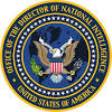NSA bulk collection program to continue into November, say ODNI and DOJ
 On August 28, the Office of the Director of National Intelligence and the Department of Justice issued a joint statement on the Section 215 bulk telephony program:
On August 28, the Office of the Director of National Intelligence and the Department of Justice issued a joint statement on the Section 215 bulk telephony program:
On August 27, 2015, the Foreign Intelligence Surveillance Court issued a Primary Order approving the government’s application to renew the Section 215 bulk telephony program. The USA FREEDOM Act of 2015 banned bulk collection under Section 215 of the USA PATRIOT Act, but provided a new mechanism to allow the government to obtain data held by the providers. To ensure an orderly transition to this new mechanism, the USA FREEDOM Act provided for a 180-day transition period during which the existing NSA bulk telephony metadata program may continue. After considering an application filed shortly after the passage of the USA FREEDOM Act, on June 29, 2015, the Court held that the continuation of the NSA’s bulk telephony metadata program during the transition period remains consistent with both the statute and the Fourth Amendment. The authority under the Court’s June 29 order was set to expire today, August 28, 2015.
The Government recently filed an application to renew the authority to collect bulk telephony metadata. On August 27, 2015, the Court authorized the continued collection of telephony metadata through November 28, 2015, the end of the 180-day transition period contemplated by the USA FREEDOM Act. As of November 29, 2015, both the 180-day transition period and the Court’s authorization will have expired and the bulk collection of telephony metadata pursuant to Section 215 will cease.
As previously stated in a July 27, 2015 Joint Statement, NSA has determined that analytic access to the historical metadata collected under Section 215 (any data collected before November 29, 2015) will also cease on November 29, 2015. However, solely for data integrity purposes to verify the records produced under the new targeted production mechanism authorized by the USA FREEDOM Act, NSA, subject to court approval, plans to allow technical personnel to continue to have access to the historical metadata for an additional three months. Separately, NSA remains under a continuing legal obligation to preserve its bulk 215 telephony metadata collection until civil litigation regarding the program is resolved, or the relevant courts relieve NSA of such obligations. The telephony metadata preserved solely because of preservation obligations in pending civil litigation will not be used or accessed for any other purpose, and, as soon as possible, NSA will destroy the Section 215 bulk telephony metadata upon expiration of its litigation preservation obligations.
As background, early last year in a speech at the Department of Justice, President Obama announced that the Intelligence Community would end the Section 215 bulk telephony metadata program as it previously existed. The President directed the Intelligence Community and the Attorney General to develop options for a new approach to match the capabilities and fill gaps that the Section 215 program was designed to address without the government holding this metadata. After carefully considering the available options, the President announced in March 2014 that the government should not hold this data in bulk, and that the data should remain at the telephone companies with a legal mechanism in place that would allow the government to obtain data pursuant to individual orders from the FISC approving the use of specific numbers for such queries.
The President also noted, however, that legislation would be required to implement this new approach and the administration worked closely with Congress to enact the President’s proposal. On June 2, 2015, Congress passed and the President signed the USA FREEDOM Act of 2015, which reauthorized several important national security authorities; banned bulk collection under Section 215 of the USA PATRIOT Act, under the pen register and trap and trace provisions found in Title IV of FISA, and pursuant to National Security Letters; and adopted the new legal mechanism proposed by the President.
As in past primary orders in effect since February 2014, and consistent with the President’s direction, the Court’s new Primary Order requires that during the transition period, absent a true emergency, telephony metadata can only be queried after a judicial finding that there is a reasonable, articulable suspicion that the selection term is associated with an approved international terrorist organization. In addition, the query results must be limited to metadata within two hops of the selection term instead of three.
The new Primary Order is available here and on icontherecord.tumblr.com.
Source: ODNI
Tags:
metered






